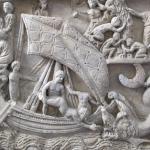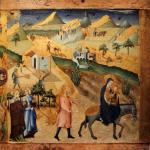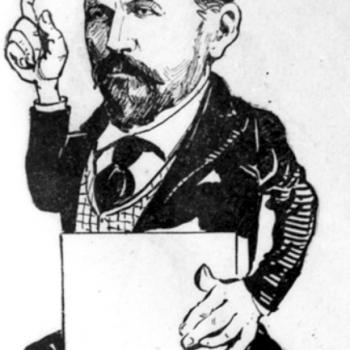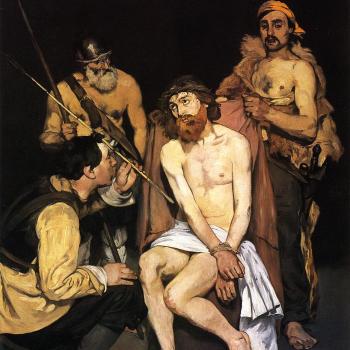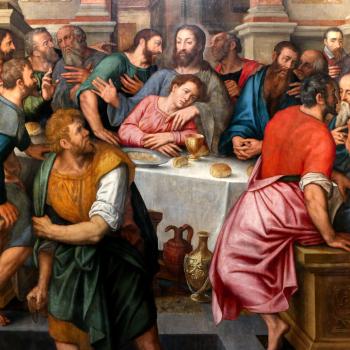
One of the worst forms of Christianity is Christian Nationalism. To follow its principles, Christians must deny many aspects of Scripture and the Christian tradition. It is a form of idolatry, as it idolizes nations, or particular races, perhaps even genders, viewing some as superior to all others, and in doing so, grant them more rights than everyone else. Those who are not of the favored class, whatever it is, are not only denied help when it is needed, they are actively oppressed, pushed down, so that they cannot challenge those whom Christian Nationalists believe should be favored with riches and power. In the United States, this is often seen coming from those who proclaim “America First.” To make sure “real Americans” have all the benefits they believe such Americans should receive, they make all kind of laws to reinforce the distinctions they have made, saying anyone who opposes such laws are evil because they deny law and order. No unjust law has the legitimate force of law; those who try to create and enforce them are themselves the ones who deny justice, that is, they are the ones who deny true law and order.
The rhetoric concerning the borders of the United States coming from those who claim to be Christian, saying the borders should be “closed” and all those who come in need not only rejected, but sent back to the places they have come from, no matter the harm they will suffer, represents the way Christian nationalism has had Christians reject basic principles of the Christian faith. Christian Scripture would have Christians look to Jesus and see how he assumed humanity, making all humanity one in him. In him, the divisions which sin has created in humanity are overcome. One of the functions of Christian history should be the realization of such unity. Christianity teaches us to relativize nationalistic or gender related differences, while Christian Nationalists want to absolutize them, and so keep humanity divided, reinforcing the division which sin has created.
The true Christian message, the message of hope and good will towards one’s neighbor, is exemplified in and with the migrants, those whom the Christian Nationalists undermine. For those migrants are following the example of the children of Israel, and later, Jesus and the Holy Family, by seeking, with hope, for a place not only of refuge, but a place which they can call home. Many such migrants, more than the so-called Christians promoting “America First” or a similar kind of Christian Nationalism, place their hope and trust in God, as Pope Benedect XVI, reflecting upon the life of such migrants, said:
Faith and hope are inseparable in the hearts of many migrants, who deeply desire a better life and not infrequently try to leave behind the “hopelessness” of an unpromising future. During their journey many of them are sustained by the deep trust that God never abandons his children; this certainty makes the pain of their uprooting and separation more tolerable and even gives them the hope of eventually returning to their country of origin. Faith and hope are often among the possessions which emigrants carry with them, knowing that with them, “we can face our present: the present, even if it is arduous, can be lived and accepted if it leads towards a goal, if we can be sure of this goal, and if this goal is great enough to justify the effort of the journey.”[1]
Christians, far from undermining the hope of migrants, far from demeaning them because of their needs, should heed Scripture and welcome them. Christians are called to be the salt of the earth, to be a force for good. If they are not, they risk facing the same kind of judgment which Moses warned the people of Israel would face if they did not help those in need: “Cursed be he who perverts the justice due to the sojourner, the fatherless, and the widow” (Deut. 27:19a RSV). The judgment of God, revealed by the prophets, were upon the people of Israel when they abandoned the justice expected of them:
And the word of the LORD came to Zechariah, saying, “Thus says the LORD of hosts, Render true judgments, show kindness and mercy each to his brother, do not oppress the widow, the fatherless, the sojourner, or the poor; and let none of you devise evil against his brother in your heart.” But they refused to hearken, and turned a stubborn shoulder, and stopped their ears that they might not hear. They made their hearts like adamant lest they should hear the law and the words which the LORD of hosts had sent by his Spirit through the former prophets. Therefore great wrath came from the LORD of hosts. (Zech 7:8-12 RSV).
Christian Nationalists, like those following the America First ideology, far from promoting the good of their own nation, undermine it. The more they hinder the greater good, the more particular goods will be affected and undermined, so that all will suffer, not just those Christian Nationalists actively oppress. That means, things will get worse, but because they do not want to acknowledge the real causes of the problems they face, they will try to make everyone else their scapegoat, and in doing so, double down on the injustices they promote, and so, things will continue to become worse and worse. The more Christians look down upon migrants, the more they deny mercy and grace to them, the more they will be denied mercy and grace themselves and will experience a reflection of the injustice they have others experience. But there is hope for all. If they repent and change their ways, if they start to show mercy to those in need, such as migrants and especially refugees at their border, the more they will find they will receive mercy and grace, and the common good which they destroyed can slowly be restored.
Today, Christians must realize they are being tried and tested; will they live up to the expectations of the Gospels, showing mercy and grace to everyone, especially the migrant and the refugee at their border of the country they live in, or will they be told by Jesus he never knew them, because they denied Jesus when he was at the border?
You who say you are Christian, when you see that Christ is in need, do you leave your wealth to those who are not in need? Christ is poor, and do you further increase the wealth of the rich? Christ is hungry, and do you prepare delicacies for those who are surfeited? Christ complains that He even lacks water, and do you fill the storehouses of the drunken with wine? Christ is weakened by the want of everything, and do you gather an abundance for those who are in luxury? Christ promised you eternal rewards for the gifts given by you, and do you bestow everything on those who will give you nothing? [2]
Christian Nationalists like to suggest the decline of their country lies with those who are merciful and kind to strangers. But the reverse is true. The decline comes from the sinful attitude of Christian Nationalists. They strangle the work of grace in the world. They deny the humanity of the other. They embrace the way of sin, the way of division, instead of the way of love which works to unite all humanity and make them one. Scripture constantly warns them they will bring judgment and destruction upon themselves, though it also tells them that until that destruction takes place, it is not necessary — they have been given a warning, and what it says will happen if they do not change their ways, will happen. However, if they repent like the people of Nineveh, then their destruction will be put off and hopefully never come. Thus, what God had Jeremiah say in his day is true for us in ours:
For if you truly amend your ways and your doings, if you truly execute justice one with another, if you do not oppress the alien, the fatherless or the widow, or shed innocent blood in this place, and if you do not go after other gods to your own hurt, then I will let you dwell in this place, in the land that I gave of old to your fathers for ever. (Jer. 12:5-7 RSV).
Let us not deny those in need. Let us see Jesus at the border. Let us welcome and help refugees, even as we show hospitality to migrants. Let us look at migrants as an opportunity for us to live out the Gospel, for by doing so, we will evangelize by our actions.
[1] Pope Benedict XVI, “Message For The World Day Of Migrants and Refugees (2013).” Vatican translation (10-12-2012).
[2] Salvian the Presbyter, “The Four Books of Timothy to the Church” in The Writings of Salvian the Presbyter. Trans. Jeremiah F. O’Sullivan (Washington, DC: CUA Press, 1962), 361-2.
Stay in touch! Like A Little Bit of Nothing on Facebook.
If you liked what you read, please consider sharing it with your friends and family!
N.B.: While I read comments to moderate them, I rarely respond to them. If I don’t respond to your comment directly, don’t assume I am unthankful for it. I appreciate it. But I want readers to feel free to ask questions, and hopefully, dialogue with each other. I have shared what I wanted to say, though some responses will get a brief reply by me, or, if I find it interesting and something I can engage fully, as the foundation for another post. I have had many posts inspired or improved upon thanks to my readers.


